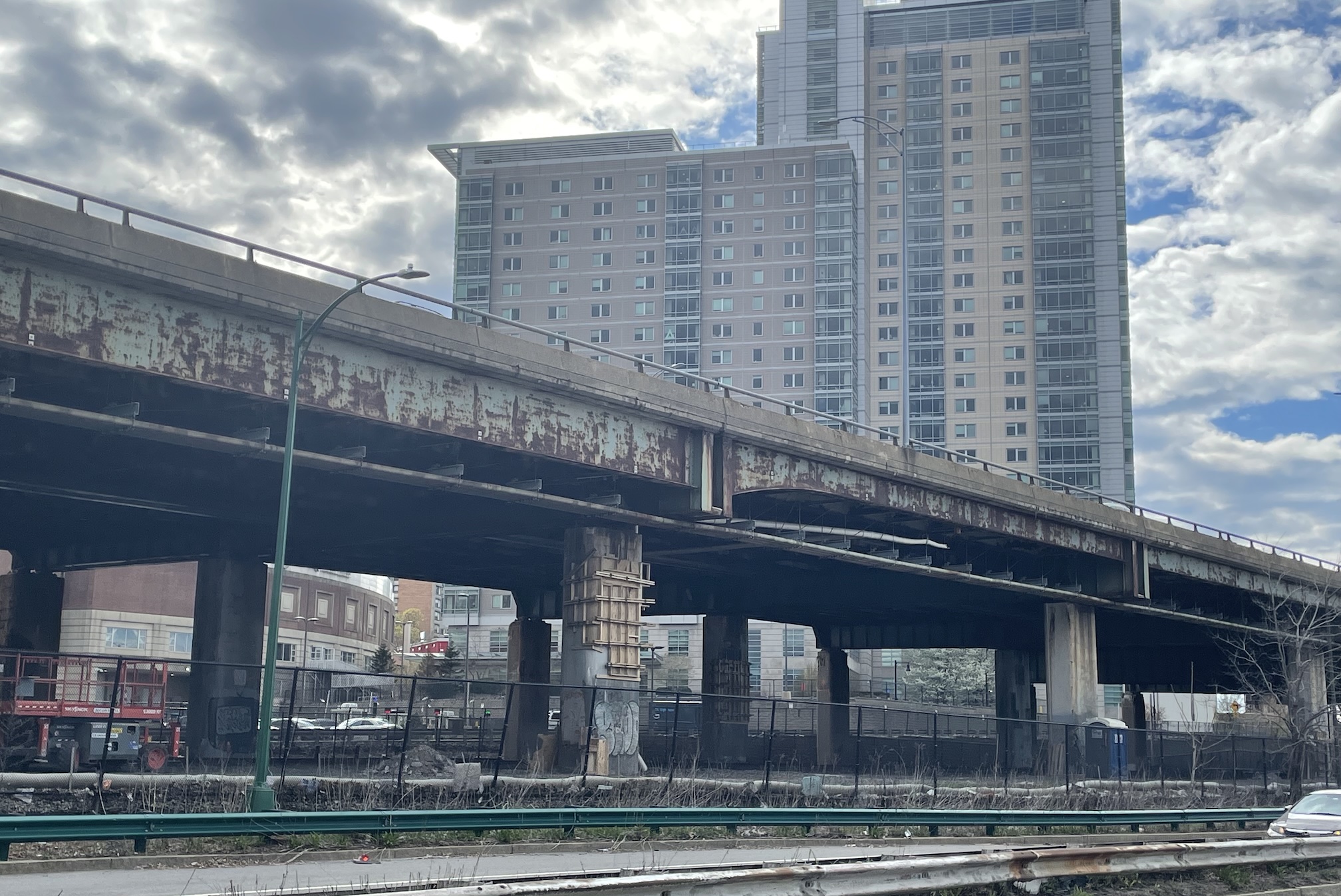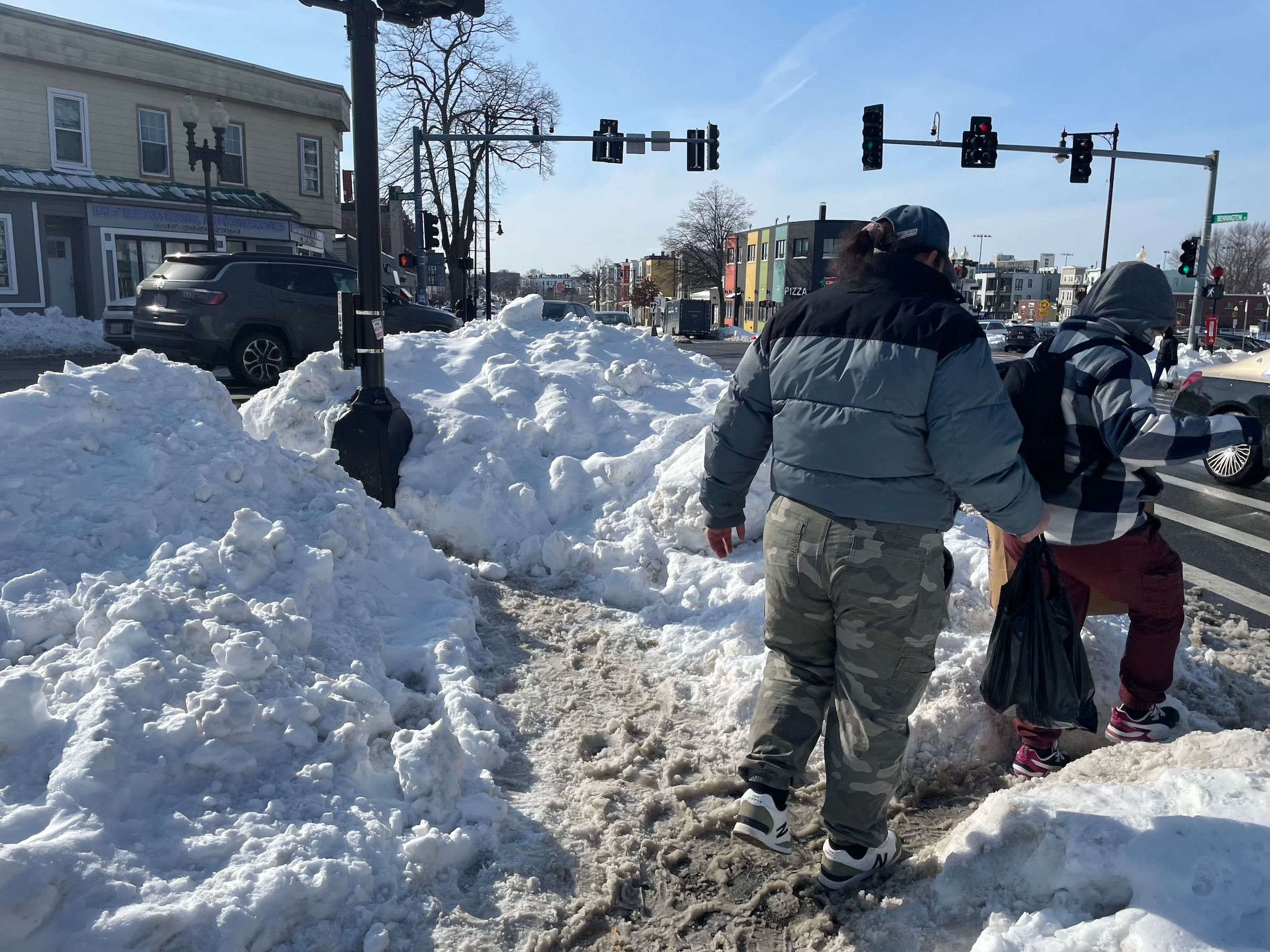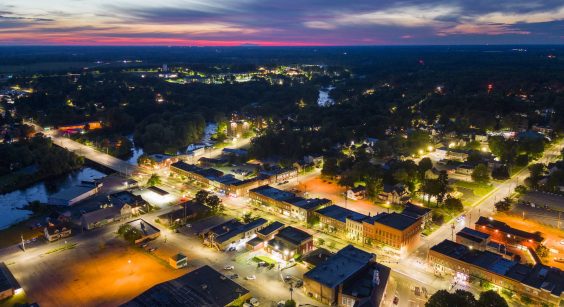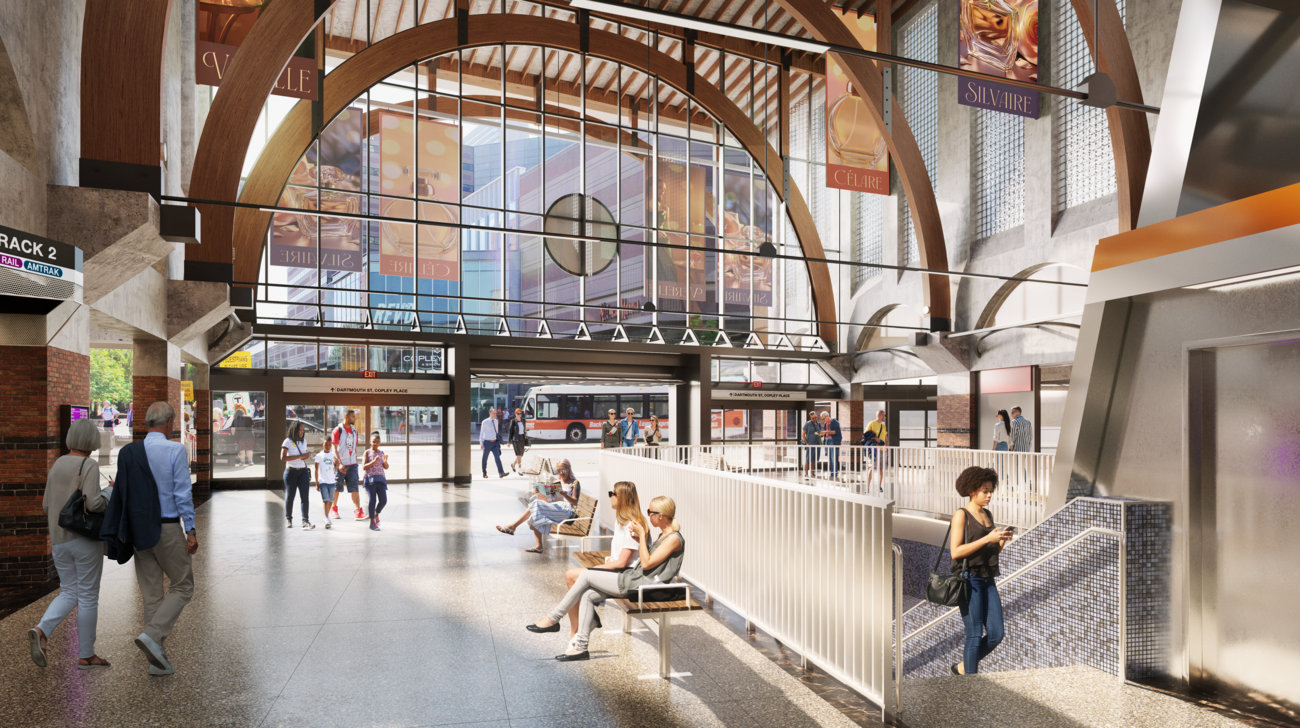Editor's note: this story originally appeared on StreetsblogUSA and has been edited to add details about projects that could be affected in Massachusetts.
Congressional transportation leaders have moved to rescind nearly all funding for one of the largest federal efforts to undo the damage caused by highway construction and other harmful infrastructure projects, jeopardizing billions of dollars for walking, biking, transit, and human-scaled places.
The House Transportation and Infrastructure Committee proposed on Tuesday to "permanently rescind" all not-yet-obligated funds in the Neighborhood Access and Equity Program, which helps repair the harms of past transportation projects by turning downtown highways into boulevards, installing bus rapid transit, completing citywide sidewalk networks, adding bike lanes and trails, and other critical transportation projects across America.
Among the funds at risk are a $335 million Reconnecting Communities grant that the Biden administration had pledged for the Allston I-90 highway project.
Other Massachusetts projects at risk of losing funding include:
- Design funding for a proposed bridge over the Fitchburg Line tracks in the Alewife neighborhood of Cambridge ($2.4 million)
- Planning funds to improve connections between Chelsea and East Boston with "resilient and family-friendly transportation networks" along Chelsea Creek ($2.5 million)
- Planning funds for the City of Lynn to design a new regional rail station and transit-oriented redevelopment for its River Works area ($561,000)
A map of all Reconnecting Communities and Neighborhood Access and Equity projects that are at risk, via Transportation for America:
Because these projects take time to plan and build — and because the Neighborhood Access and Equity program was funded under the Inflation Reduction Act, which is vulnerable to cuts during the budget reconciliation process — Transportation for America estimates that up to 94 percent of the $3.3 billion doled out under the program could be at risk.
Meanwhile, a staggering 78 communities that were awarded those grants more than a year ago are still awaiting federal reimbursement, for which they would be left holding the bag if the cuts were to pass.
The moves might not be surprising in light of the Trump administration's broad attacks on equity — a concept which, of course, is embedded right in the name of the Neighborhood Equity and Access program.
But advocates were still stunned by the scale of the proposed rescissions, which take aim at a broadly popular initiative that received more than a 1,250 applications from all 50 states.
Advocates particularly objected to the idea that the cuts would "reduce the deficit with recessions of wasteful Green New Deal style spending," as committee Chairman Sam Graves (R-Mo.) described the intent of the proposal.
In part because the Trump administration has called on House transportation leaders to increase funding for border security and air traffic control to the tune of $35 billion, experts say all the cuts proposed by the House T&I committee would only reduce the deficit by $10 billion – just one-tenth of one percent of the $6.8 trillion federal budget.
Meanwhile, rather than eliminating a "wasteful program," slashing the Neighborhood Access and Equity Program to improve the economy would actually forfeit the many economic benefits of healing communities destroyed by autocentric infrastructure, which are proven to save money in public health burdens, avoided road deaths and injuries, expensive road maintenance, and other costs, while stimulating billions in economic activity.
A highway-to-boulevard project in Rochester, N.Y., for instance, "yielded private development worth more than 10 times the initial public investment," advocates at America Walks wrote in an open letter to the committee; a similar project in Chattanooga has attracted millions in private dollars.
"Reconnecting communities projects are not just about repairing old scars, but are about solving current problems and building toward a better future," wrote the group. "Economic development and reconnecting communities projects go hand in hand, and research has backed this long before the Infrastructure Investment and Jobs Act and Inflation Reduction Act boosted funding for them."
And Congress's assault on America's efforts to heal highway harms might not be over yet.
That's because the Neighborhood Access and Equity program was actually created to complement another grant initiative called the Reconnecting Communities program, which initially received robust funding under the Infrastructure Investment and Jobs Act before being whittled down during negotiations over that law.
While the two programs have slightly different criteria — and Reconnecting Communities dollars may prove slightly harder for Congress to claw back — they're similar enough that the Biden administration announced the winners of both grants in a single press release, and the two programs are often talked about in the same breath.
The McGrath Boulevard project in Somerville, which had received a pledge for $43 million in federal funds for construction, is one of the "reconnecting communities" projects that appears to be receiving funding from the 2021 Infrastructure Investment and Jobs Act, not from the 2022 Neighborhood Access and Equity program that's being targeted in the current legislation.
For now, some advocates say it's safe to assume that the open attack on the Neighborhood Access and Equity program signals that all federal money to reconnect communities is under threat — and it's time to call your representatives to ask them to defend projects in their districts.
"We encourage you to find projects in or near your community and let your representatives know that you care about the success of these projects and that they matter for your community’s advancement," wrote Corrigan Salerno of Transportation for America. "If you wish this program to continue, we urge you to let your representatives know as well."
We updated this story at 1 p.m. to reflect that the federal grant for the McGrath Boulevard project appears to come from the 2021 Infrastructure Investment and Jobs Act, not from the 2022 Neighborhood Access and Equity program.
This is a developing story and will be updated as new information becomes available.






